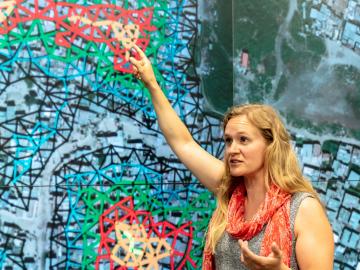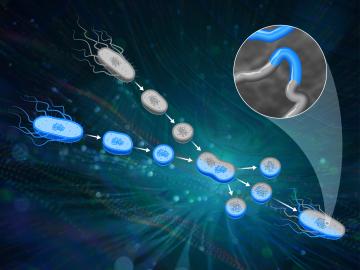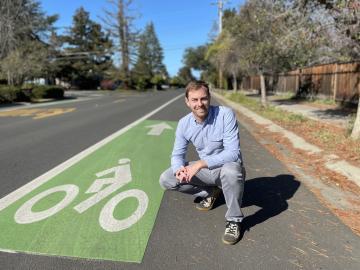
Filter News
Area of Research
- (-) Energy Science (61)
- (-) National Security (16)
- (-) Supercomputing (46)
- Advanced Manufacturing (5)
- Biology and Environment (81)
- Biology and Soft Matter (1)
- Computational Biology (2)
- Computational Engineering (2)
- Computer Science (5)
- Electricity and Smart Grid (2)
- Fusion and Fission (5)
- Fusion Energy (7)
- Isotopes (1)
- Materials (48)
- Materials for Computing (11)
- Mathematics (1)
- Neutron Science (15)
- Nuclear Science and Technology (10)
- Nuclear Systems Modeling, Simulation and Validation (1)
- Quantum information Science (1)
- Sensors and Controls (1)
- Transportation Systems (1)
News Type
News Topics
- (-) Advanced Reactors (3)
- (-) Big Data (24)
- (-) Biology (14)
- (-) Grid (32)
- (-) Materials Science (23)
- (-) Physics (4)
- 3-D Printing/Advanced Manufacturing (47)
- Artificial Intelligence (29)
- Bioenergy (15)
- Biomedical (14)
- Biotechnology (4)
- Buildings (25)
- Chemical Sciences (6)
- Clean Water (7)
- Composites (11)
- Computer Science (76)
- Coronavirus (18)
- Critical Materials (7)
- Cybersecurity (14)
- Energy Storage (42)
- Environment (49)
- Exascale Computing (17)
- Fossil Energy (1)
- Frontier (18)
- Fusion (1)
- High-Performance Computing (30)
- Hydropower (3)
- Isotopes (1)
- Machine Learning (17)
- Materials (23)
- Mathematics (4)
- Mercury (2)
- Microelectronics (1)
- Microscopy (6)
- Nanotechnology (8)
- National Security (25)
- Neutron Science (9)
- Nuclear Energy (7)
- Partnerships (5)
- Polymers (8)
- Quantum Computing (15)
- Quantum Science (16)
- Security (10)
- Simulation (14)
- Software (1)
- Space Exploration (5)
- Statistics (1)
- Summit (29)
- Transportation (47)
Media Contacts

What’s getting Jim Szybist fired up these days? It’s the opportunity to apply his years of alternative fuel combustion and thermodynamics research to the challenge of cleaning up the hard-to-decarbonize, heavy-duty mobility sector — from airplanes to locomotives to ships and massive farm combines.

A team of researchers has developed a novel, machine learning–based technique to explore and identify relationships among medical concepts using electronic health record data across multiple healthcare providers.

A study led by researchers at ORNL could help make materials design as customizable as point-and-click.

Tackling the climate crisis and achieving an equitable clean energy future are among the biggest challenges of our time.

Unequal access to modern infrastructure is a feature of growing cities, according to a study published this week in the Proceedings of the National Academy of Sciences

ORNL scientists had a problem mapping the genomes of bacteria to better understand the origins of their physical traits and improve their function for bioenergy production.

David McCollum is using his interdisciplinary expertise, international networks and boundless enthusiasm to lead Oak Ridge National Laboratory’s contributions to the Net Zero World initiative.

A study by researchers at the ORNL takes a fresh look at what could become the first step toward a new generation of solar batteries.

University of Pennsylvania researchers called on computational systems biology expertise at Oak Ridge National Laboratory to analyze large datasets of single-cell RNA sequencing from skin samples afflicted with atopic dermatitis.

A team of scientists led by the Department of Energy’s Oak Ridge National Laboratory and the Georgia Institute of Technology is using supercomputing and revolutionary deep learning tools to predict the structures and roles of thousands of proteins with unknown functions.


